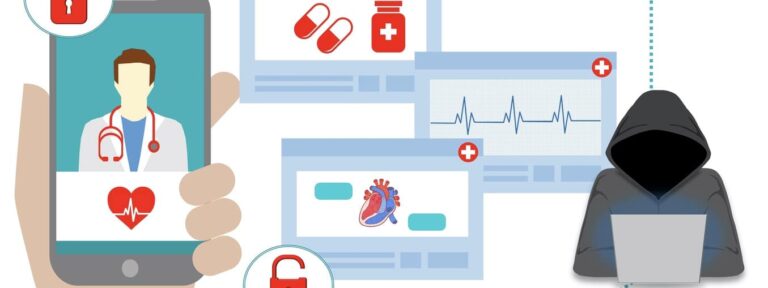As we move further into the 21st century, it’s important that businesses keep up with the latest trends to stay ahead of the competition. One such strategy is media monitoring. This is a process by which companies collect and analyze data from various online sources. It can help digital marketers better understand how the public perceives their brand.
This practice has become increasingly important in recent years, as social media has given consumers a voice like never before. Public sentiment can spread like wildfire on social media platforms like Twitter and Facebook.
When the general feeling is positive, it can work in your favor, and it gives a great platform to engage with your audience. However, when the public mood is negative, this can be very damaging to a brand’s reputation.
Media monitoring is the best way to stay on top of how you’re being perceived. In 2022, this practice will continue to evolve and become increasingly more critical as digital life becomes even more prevalent.
In this article, we’ll discuss five reasons why media monitoring will evolve even further in 2022.
High levels of investment in media monitoring
As mentioned earlier, media monitoring is becoming an increasingly important process for businesses. This is why we’re seeing more companies make significant investments in this area. It’s essential for marketing teams to know what the discussion around their brand is.
Tools that were once only available to the largest companies are now becoming more affordable and accessible to smaller businesses. Media monitoring platforms are becoming more sophisticated, and there is a greater emphasis on analyzing data in real-time.
More companies are entering the market, which drives competition and lowers prices for media monitoring software.
Marketing teams have to deal with a lot of different social media platforms, from Instagram and Snapchat to YouTube and TikTok.
Wherever people are gathering online, you need a presence. Not only to advertise your services to them but to find out what they’re saying about you. Digital marketers need a way to analyze the data from each social media channel in real-time.
Kira Goldring, a Content Writer from Tailor Brands, says it best: “Analyzing brand analytics is part of monitoring each and every social media channel you manage, and it should help inform the strategies you use to move forward with your branding.” But that means when social media channels evolve, so must the way you analyze the data.
Investment in media monitoring software is on the rise because digital advertising will overtake TV as the number one for global ad spend in 2022. Brands need to be highly active online, and media monitoring is the best way to inform your social marketing strategy in real-time.
Competitors are already doing it
Many of your competitors have most likely already implemented some form of media monitoring into their business plans. If you don’t do the same, you run the risk of falling behind.
In order to stay ahead of the curve, it’s important to be aware of what your competition is doing and how the general public perceives them.
Social media is a great way to get this information. Platforms like Twitter and Facebook make it easy to see what people are saying about your competition in real-time. It’s also a great way to gather intel on what new strategies they’re implementing and how you can adapt your own plans accordingly.
Sixty-four percent of marketers are already making the most of social media to build and leverage their online community. Another 30 percent of marketers have reported that they will start their own social media communities in 2022.
In order to beat the competition, you need to understand what they’re doing right and what they’re doing wrong. If they’ve had a head start using media monitoring software to build their social media strategies, you can analyze their success to inform your own.
Using a tool like Stack’s Spatial Browser can allow you to set up different views having your media monitoring tools organized side by side. This will make it easier to track what people are saying about your company as well as your competitors.
Misinformation is abundant on the internet
The internet has become a breeding ground for misinformation. This can be very damaging to businesses when false information starts spreading about them online.
It’s vital for companies to have a system in place for monitoring the internet for any mention of their brand, good or bad. This will help you quickly address any potential damage control situations that may arise.
Media monitoring will be your best friend when it comes to getting ahead of negative sentiment. One person’s bad experience could lead to a viral tweet that gets picked up by major newspapers across the world in a matter of minutes.
The more mentions something gets, the further it travels. This is good news for positive messages as marketers can leverage this into a PR strategy. However, when the mentions are mounting about something negative, the further it spreads, the more damage it can do to your reputation.
Your marketing team will need media monitoring software to keep their finger on the pulse of the public sentiment for your brand. They may be able to prevent negativity from spreading quickly before the need to go into damage control mode.
As more and more people turn to social media to talk about their experiences, brands need to be paying attention. Media monitoring will help to build a better understanding of how customers and the general public feel about your company.
Brands need real-time information
In order to be successful in the digital age, brands need to be able to react quickly to news and events as they happen. Media monitoring can help you do this by giving you real-time information about what people are saying about your company online.
This is especially important for companies that have a lot of social media channels. It’s impossible to keep track of all the conversations happening on them without some form of media monitoring software.
Not only will this help you stay up-to-date on any negative sentiment towards your brand, but it will also help you identify any positive sentiment early on so that you can capitalize on it.
Real-time media monitoring will help you get ahead of the competition and stay on top of your social media game. Competitor analysis can help you to identify what’s trending in your industry. This can inform your marketing strategies as you can build ads and content around these trends.
The internet crosses borders, and if you have an international audience, you need to know what’s going on in every corner of the world. Some questions you need to be able to answer at any point are:
- What are my customers dealing with?
- What’s influencing buying decisions for my customers?
- How do consumers feel about my brand?
- How do consumers feel about my competitors?
- What current events are influencing customer sentiments?
- What are the latest trends in each region?
Brands need to monitor social media to answer these questions and more in real-time. Social media won’t wait for you to get your plans together. Unfortunately, the luxury of time doesn’t exist anymore. Digital marketers need a solution for keeping up-to-date with everything, all of the time.
Media monitoring helps to build a community
Media monitoring can help to build a community around your brand. When people feel like they are being listened to, they are more likely to engage with the company.
You can show that you care about them by actively listening to customers and responding to their queries, complaints, and feedback. This will help create a loyal customer base who will be more likely to stick with you through thick and thin.
Additionally, when customers see that you are engaging with other customers on social media, they may be encouraged to do the same. This will create a community of people who are talking about your brand online and sharing positive remarks about you.
Take Kudos as an example. It’s a checkout assistant that helps consumers maximize their credit card rewards and streamline their entire checkout process whenever they shop online.
Whenever a consumer gets to a checkout page, Kudos crunches all the data across 3000 cards that have rewards for in their database to show the card that gets consumers the maximum rewards (converted to dollar equivalent) and benefits (e.g. purchase protection, extended warranty).
With a product that solves issues for online shoppers their aim is to build a community around their product, actively replying and generating lasting connections with their potential customers. More often than not communities are the driving force behind successful products, as new users usually come from people who have had a positive experience with said product. Communities should be part of any product-led growth strategy.
There are many ways that you can build a community, including social media, forums, newsletters, hosted servers, and an interactive website optimized for all devices with a drag and drop website builder. You need to be aware of the laws surrounding consumer data, including California Consumer Protection Act (CCPA) and General Data Protection Regulation (GDPR).
Moreover, you can also use preventive tactics to strengthen the relationship with your customers. For example, companies in the public fleet industry might implement searchable trip histories to make it easy to quickly respond to users’ complaints and tracking features to ensure services are performed efficiently. This can be a great way to avoid a bad reputation, build trust and use the positive sentiment to further engage with your community.
In order to use consumer data for monitoring and analytics, it is critical that consumers know their rights and that brands are transparent about how their information will be collected and used.
When monitoring media for consumer perception about the brand, you want to avoid potential liabilities from breaching private information. You can use a privacy policy generator for your brand, which will allow you to stay in compliance with privacy laws.
Media monitoring is an essential part of any PR strategy. It can help prevent negative sentiment from spreading and help you capitalize on any positive sentiment. Media monitoring is no longer a luxury. It’s a necessity for brands who want to stay ahead in the digital age.
Conclusion
Media monitoring isn’t just for large companies with big budgets. Even small businesses can benefit from using monitoring software. If you want a solid digital presence, you need to understand what’s being said about your brand.
The digital expansion is not going to slow down as more people turn to the internet for shopping, news, and entertainment. Media monitoring is going to keep growing in 2022 and beyond with more tools and strategies being developed.












